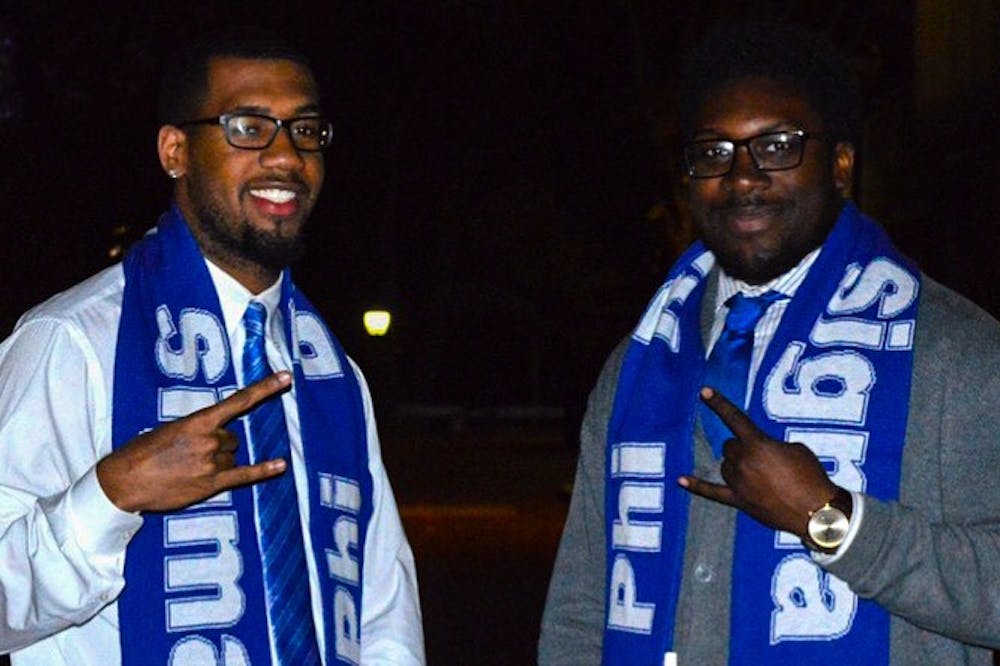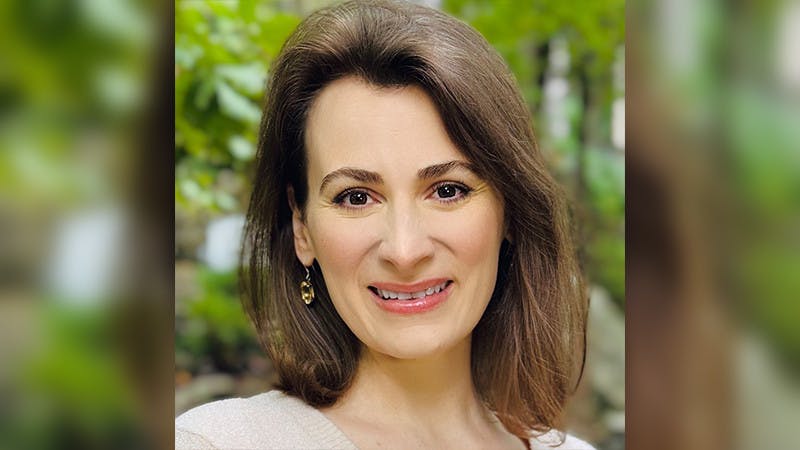
Photo from Chris Harrison and Michael Beavers
Two years after it left campus in 2015, a historically black fraternity has been revived on Penn's campus.
On Nov. 10, College junior Chris Harrison and Wharton junior Michael Beavers affiliated with Phi Beta Sigma. They are the first members at Penn since the University officially recognized the chapter in October. Sigma had originally existed at Penn since 1998 as a co-charter between Penn and Drexel University, but the last undergraduate member of the fraternity graduated in 2015.
Harrison said participation in the group started dwindling in 2010, with around one or two members joining each year. The chapter's "intermittent presence" eventually died down in 2015. He added that he thinks the fraternity has faced difficulty maintaining a presence on campus partly because there are fewer black students at Penn compared to other minority groups.
In the fall of 2016, there were 751 black undergraduates enrolled at Penn, which constitutes slightly over 7 percent of the undergraduate population. According to the National Center for Education Statistics, the number of black students enrolled in universities nationwide in 2015 was 14 percent.
The Phi Beta Sigma Inc. advisor for Penn Brandon Brown said that in the past, coordinating activities from the chapter between Penn and Drexel was an "administrative challenge." Harrison agreed, adding that Drexel's trimester system and five-year programs also made a joint-chapter difficult to maintain.
This time round, Harrison and Beavers intend to establish a chapter exclusively on Penn's campus.
Harrison said that, unlike many students who decide to participate in Greek life, he and Beavers did not feel a connection toward a specific fraternity when they entered Penn.
"We didn't particularly gravitate toward any [fraternity]. Seeing that Phi Beta Sigma didn't have a presence on campus, we saw it as an opportunity to sort of cultivate that presence once more," he said.
There are three other culturally black fraternities on Penn's campus that have been active for years. They are all classified as city-wide chapters, meaning that they include three or more participating universities.
Beavers and Harrison said they decided to reactivate the chapter after finishing their freshman year by reaching out to the Office of Fraternity and Sorority Life. OFSL connected them with Brown, who had been working with Larry Moses, the former Director of OFSL and a Sigma brother, to charter a Penn-specific chapter.
Beavers said he was motivated to pursue the chapter after realizing that many mentors in his life are affiliated with Sigma.
"I was reflecting on the impact they had on me, not only as an athlete, but also as a student and a man," Beavers said. "I thought, 'this is the kind of people I want to surround myself with, the network I want to have, and the kind of impact I want to make on the community.'"
Beavers and Harrison said they hope to relax black fraternities' "competitive" culture with their new organization.
Beavers said black fraternities on campus are competitive "in the same way that Penn is competitive." The groups try to "outdo each other in terms of interest, attendance, parties, instead of looking out for one another."
Both students said they plan to collaborate with other Greek organizations on events and initiatives.
They are tentatively planning to collaborate with Students Organizing for Unity and Liberation, the African-American Resource Center, and other Greek organizations to bring an activist from the Civil Rights Movement to speak on campus during Black History Month in February.
"I don't want Penn to think that we are simply another black organization on campus," Brown said. "I want the student body to recognize the fact that we will have another student organization on campus that is ready and willing to work with all interested individuals, departments, and other organizations."
The Daily Pennsylvanian is an independent, student-run newspaper. Please consider making a donation to support the coverage that shapes the University. Your generosity ensures a future of strong journalism at Penn.
Donate






